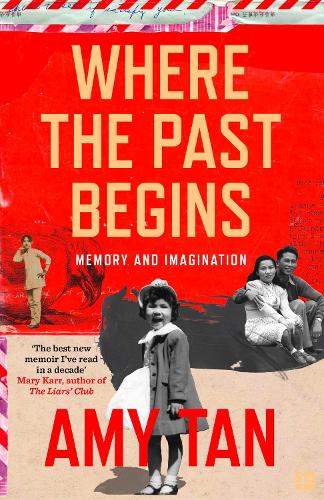
Where the Past Begins: Memory and Imagination
(Paperback)
Publishing Details
Where the Past Begins: Memory and Imagination
By (Author) Amy Tan
HarperCollins Publishers
Fourth Estate Ltd
22nd October 2018
1st November 2018
United Kingdom
Classifications
General
Non Fiction
814.54
Physical Properties
Paperback
368
Width 129mm, Height 198mm, Spine 23mm
260g
Description
From New York Times bestselling author Amy Tan, a memoir on her life as a writer, her childhood and the symbiotic relationship between fiction and emotional memory.
In Where the Past Begins, bestselling author of The Joy Luck Club and The Valley of Amazement Amy Tan is at her most intimate in revealing the truths and inspirations that underlie her extraordinary fiction. By delving into vivid memories of her traumatic childhood, confessions of self-doubt in her journals, and heartbreaking letters to and from her mother, she gives evidence to all that made it both unlikely and inevitable that she would become a writer. Through spontaneous storytelling, she shows how a fluid fictional state of mind unleashed near-forgotten memories that became the emotional nucleus of her novels.
Tan explores shocking truths uncovered by family memorabilia - the real reason behind an I.Q. test she took at age six, why her parents lied about their education, mysteries surrounding her maternal grandmother - and, for the first time publicly, writes about her complex relationship with her father, who died when she was fifteen. Supplied with candour and characteristic humour, Where the Past Begins takes readers into the idiosyncratic workings of her writer's mind, a journey that explores memory, imagination, and truth, with fiction serving as both her divining rod and link to meaning.
Reviews
Tan writes about her parents with love and frustration and without sentimentality, and some of the books most effective sections are the ones that examine how her view of them was affected by discoveries made later in their lives or after their deaths. She also writes with great insight about her own creative process, and how it has been affected by everything from listening to music to chance encountersThis is a compelling exploration of both the personal and creative life of a fascinating woman Sunday Business Post
Remember Battle Hymn Of The Tiger Mother, the terrifying pushy-mother manifesto written by Chinese-American Amy Chua Well, this book, by the other famous Chinese-American Amy, bestselling novelist Amy Tan, could be called Post-Battle Hymn Of The Damaged Daughter Of A Tiger Mother. Fascinating Daily Mail
It is a privilege to be given permission to rummage in any writers attic. Where The Past Begins yields treasure under the dust sheets the introduction is breathtaking all of Tans gifts, the ability to layer images, to command your attention, to shock you with a sudden slipping in of the knife are on display here Financial Times
She elaborates on the act of writing, the mechanics and results of her own imaginationTans epiphanies and revelations often revive supressed memoriesmuch of her questioning is focused on her mothers life, parts of which may sound familiar to readers of Tans fiction Guardian
Richly varied, thought-provoking book. Where the Past Begins will surely gratify Tans many fans, and likely win her numerous new ones US Today
Praise for Amy Tan:
Chinese-Americans are among the most dynamic, and socially cohesive, ethnic groups in the US Tan is one of their leading voices Sunday Times
Tan is a prodigal with her talent. She weaves a dazzling web of unfamiliar colours, smells, tastes and landscapes Sunday Telegraph
Author Bio
Born in the US to immigrant parents from China, Amy Tan failed her mother's expectations that she become a doctor and concert pianist. She settled on writing fiction. Her novels are The Joy Luck Club, The Kitchen God's Wife, The Hundred Secret Senses, The Bonesetter's Daughter, and Saving Fish from Drowning, all New York Times bestsellers and the recipient of various awards. She is also the author of a memoir, The Opposite of Fate, two children's books, The Moon Lady and Sagwa, and numerous articles for magazines, including The New Yorker, Harpers Bazar. Her work has been translated into 35 languages, from Spanish, French, and Finnish to Chinese, Arabic, and Hebrew.
